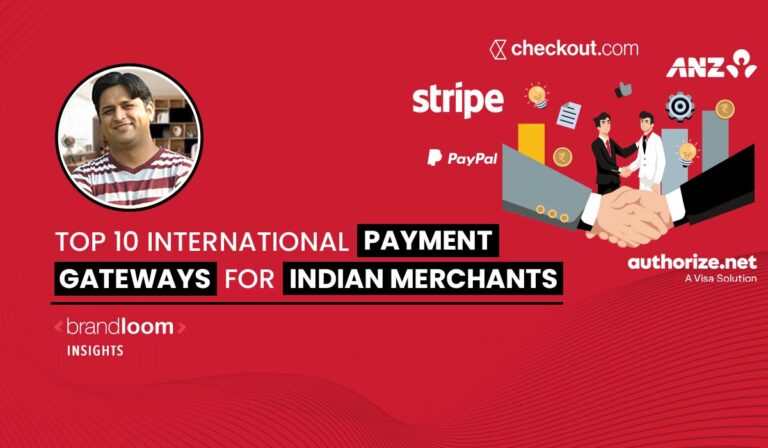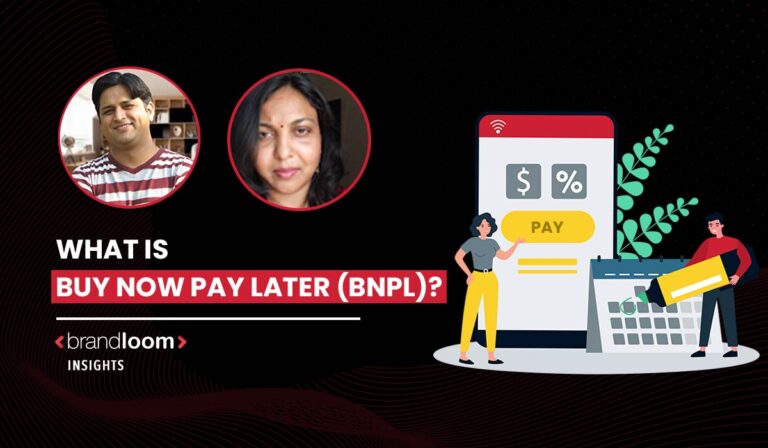As e-commerce is growing, the world is becoming a smaller place. You can become a global brand by sitting right here in India. Your dream of having a global presence is possible with eCommerce. However, your dream of a global business would not have been possible without a secure international payment gateway solution. In this article, I will discuss the Top 10 International Payment Gateway for Indian Merchants.
You may be using another payment gateway on your website and might be wondering what an international payment gateway is.
What is an international payment gateway?
- As your business goes global, you deal in multiple currencies. The chances of customers making a purchase increase when they see the price of a product in their currency. An international payment gateway allows international customers to make payments in their currency.
- The payment gateway offers maximum security to prevent any fraud from happening during transactions.
- Payment gateways accelerate and uncomplicate international payments and transactions.
Why do Indian Merchants Need The Best Payment Gateway In India for International Transactions?
Indian businesses use international payment gateway for international payments for a number of vital reasons, including:
- Global client Reach: Through the use of international payment gateways, Indian businesses may serve a sizable international client base. They may simply sell their goods or services to clients all around the globe by accepting foreign credit cards and currencies.
- Cross-Border Sales: By facilitating cross-border transactions, international payment gateways enable Indian businesses to access a wider audience outside their country. This creates fresh income sources and expansion possibilities.
- E-Commerce and Online Sales: Online sales and e-commerce overseas payment gateways are crucial for Indian merchants to provide a smooth and secure payment experience to their overseas consumers, especially with the growth of e-commerce and online enterprises.
- Hospitality and tourism sector: International payment gateways are essential for companies in the hospitality and tourist sectors, including hotels, travel companies, and tour operators. They enable these companies to receive payments from clients and tourists from other countries.
- Export-oriented enterprises: To accept payments from their worldwide clients and consumers, Indian merchants that engage in export-oriented businesses must use international payment gateways. This guarantees a quick and easy payment procedure for global commerce.
- Freelancing and digital services: Freelancers and companies in India who provide digital services like software development, graphic design, or content writing often collaborate with customers from other nations. They are able to effortlessly and securely accept payments thanks to international payment gateways.
- Education Sector: By offering simple payment choices via foreign gateways, educational institutions, and e-learning platforms in India may entice students from outside.
- Tourism and travel agencies: Tourism and travel firms in India can provide their services to visitors worldwide and take payments in various currencies.
- Investment and E-Commerce Platforms: E-commerce and investment platforms By offering foreign payment gateways, Indian e-commerce sites, and investment platforms may draw in overseas customers and investors.
- Enhanced User Experience: International payment gateways often provide an easier and more streamlined checkout procedure for foreign consumers, increasing customer happiness and loyalty.
Top 10 International Payment Gateways for Indian Merchants.
1 PayPal: Best Payment Gateway for International Transactions
PayPal is one of the most known and trusted online payment gateways for online businesses. It is an extensively used payment gateway that accepts payments through debit and credit cards. PayPal seamlessly integrates with a shopping cart to provide a safe and secure online transaction. Available in more than 200 countries, about 3,41,497 websites use PalPal across the globe. Payments are allowed in more than 100 currencies.
Things you should know about PayPal:
- No setup fee.
- Free international payment gateway in India
- Buyer protection is provided.
- Refunds and returns services are provided.
- For international payments, PayPal charges the seller 4.4% + USD 0.30 + a fixed fee based on the currency (for transactions up to USD 3,000).
- Payments can be made through a mobile international payment gateway app and a web browser.
- No annual maintenance charges.
- No withdrawal fees.
- PayPal offers a 24-hour settlement time frame.
2 Stripe: Best international payment gateway for tech support business
Stripe is the perfect payment platform for handling shopping carts of ecommerce websites. That’s why it is considered the best international payment gateway for tech support businesses. What makes them great is that they also offer recurring bill support. It is a one-stop payment solution allowing debit card and credit card processing and transactions through bitcoins, Alipay, and ACH transfers. With more than 139 countries globally, Stripe is perfect if you offer a subscription service.
Things you should know about Stripe
- Their standard plan doesn’t have any setup fee and offers international support in about countries.
- You can receive money from all major card networks like American Express, Visa, Mastercard, Maestro, and Discover. It also allows Google Pay and Apple Pay transactions.
- Stripe charges 4.3% on international cards per transaction.
- There are no monthly costs or any other hidden charges you need to worry about.
- It also provides financial reports and consolidated insights.
3 Authorize.net: Best international payment gateway
Authorize.Net is a wholly-owned subsidiary of Visa. It is a payment solution for small online businesses and merchants. They promote themselves as a merchant for small businesses. Authorize.net can be used to grow business in the US, Canada, Europe, and Australia. It has a simplified shopping cart checkout and also supports recurring billing systems. It is a flexible payment gateway that offers 24/7 free support by insightful professionals that assist you in building custom connections.
Things you should know about Authorize.net
- They charge a setup and monthly fees in addition to the transaction charges.
- They offer two fee structures – a gateway-only plan and a gateway + merchant account plan.
- Authorize.net also offers an eCheck processing service.
- They offer :
- Free website payment seal.
- Free fraud protection tolls along with free mobile payments POS app for Android.
- Online training material and tutorials.
4 Checkout.com:Best international payment gateway
Checkout.com has various merits. It offers a quick and easy setup for different payment options for international and domestic transactions. It is available across Europe, North America, Asia Pacific, the Middle East, and Latin America. Accepted payment methods include all major debit cards and credit cards such as Visa, Mastercard, Diners Club International, American Express, Discover, JCB, and UnionPay. Launched in 2012, Checkout.com offers payment options based on its groundbreaking technology and trust.
Things you should know about Checkout.com
- It offers free international payment gateway setup plans.
- Depending on your transaction volume and card type, you can opt from either Enterprise or Standard plans.
- Payments are also accepted through digital wallets like Apple Pay and Google Pay.
- They also have a stored-value digital wallet tie-up with PayPal.
- Easy online and mobile payment options are available.
- Ecommerce plugins debit card available.
- Netbanking support apart provided.
- Recurrent billing systems supported.
5 2Checkout: Best international payment gateway
Based in the United States, 2Checkout offers international payment services in over 90 currencies. They have served over 50,000 merchants in their journey of over 16 years. They have a secure digital wall and support 8 different payment types. The international payment gateway operates in about 200 international markets. 2Checkout has PCI Level 1 compliance. It also allows personalization and customization according to currency and language.
Things you should know about 2Checkout:
- This international payment gateway supports about 100 types of shopping carts.
- No setup fees. Easy and flexible integration.
- No monthly fees.
- Customers having large data volumes can get custom discounts.
- Supports recurring billing.
- Provides advanced protection against fraud.
- Allows mobile optimization.
6 CC Avenue: Best international payment gateway
Found in 2001, a PCI DSS 3.2.1 compliant payment solution for online businesses in India. Helps about 1 lakh+ merchants across the country and accepts payments through a wide range of new-age payments. Offers 200+ payment options across its platform, including seven major credit card processing (Mastercard, Visa, Maestro, RuPay Cards, Diners, JCB, Discover), 59+ net banking options, and 98+ debit card processing in addition to 16 prepaid instruments and 13 bank EMI options. Additionally, Amex EzeClick and UPI payments are supported as well.
Things you should know about CC Avenue:
- They charge no initial setup fee.
- Annual maintenance fee – INR 1200.
- Transactions charges – Flat 2% on domestic credit and debit cards, payment wallets (OlaMoney, Jiomoney, Paytm, PayZapp, SBI Buddy, Freecharge, etc.), and IMPS and UPI payments. On international credit cards, a flat fee of 3% is charged.
7 Allied Wallet: Best international payment gateway
Allied Wallet is a highly trusted secure payment gateway for high-risk international transactions and payments. It has efficient features like NextGen Dashboard, capable of providing transaction data at just one click. Currently available in 196 countries, Allied Wallet also keeps track of your sale. It is incredibly user-friendly with its convenient user interface. It is a credit card processing and merchant service provider recognized globally. Set up in 2006,
Things you should know about Allied Wallet:
- The international payment gateway Allows easy one-click payment options.
- Offers a Chargeback prevention system.
- Can handle recurring billing for subscription-based business models.
- Allied Wallet offers products for accenting international payments, a global payment gateway, and a prepaid card facility for affiliates. They also have an eWallet product.
- Accepted payment options include all major credit cards Visa, MasterCard, American Express, Discover, JCB, Diners Club, and China Union Pay
- Has no sign-up or setup fee.
- Offers zero-cost integration assistance.
- Offers same-day setup facilities.
8 ANZ: Best international payment gateway
ANZ is a great online payment gateway for Indian merchants. It offers plans like – Startup plan, Business Select Plan and Community plan (suited for non-profit groups) They international payment gateway also offers merchant account services.
Things you should know about ANZ:
- Offer web and mobile app payment solution.
- This is amazing – In their startup package, they have waived off the monthly fees for the first 12 months and allows unlimited transactions.
- The Business select plan charged a monthly fee of $32+GST.
- For the community plan designed for non-profits, customised deals are offered. They have also waived off establishment fee, monthly fee and the annual fee.
- Provides insurance specific and prevention of foreign exchange risk.
- Also helps in the Import, export and management of foreign exchange.
9 Payubiz: Best international payment gateway
Payubiz is a user-friendly online payment gateway for Indian merchants going global. You would be surprised to know that only 30% of the Indian merchants use the international payment gateway solution. One of the most trusted solutions for online payments, Payubiz, provides its services across 16+ countries. It offers the settlement services in 125+ currencies.
Things you should know about Payubiz:
- Hassle-free set up. No need to engage with the local set up as it is self-integrated.
- They offer the best conversion rate in the business.
- To protect the seller, they have partnerships with global banks to reduce forex risk.
- They offer one-tap payment options and services.
- It also offers intuitive integration, best conversion rates and insightful analytics for growing online businesses.
10 SecurionPay: Best international payment gateway
If you are looking for high conversions, SecurionPay is your international payment gateway! They offer a simple, clean and fast way of payments. They have flexible API that can be customized to cater to meet the needs of online businesses.
Things you should know about SecurionPay:
- Has options for customizable checkout popups.
- One-click payments and advancement, resulting in faster checkouts.
- Personalization is their USP.
- Extremely secure transactions.
- Recurring payments option needed for subscription models offered.
- Accepted payment methods include major cards (Mastercard, Visa, Americal Express, Visa Electron, Discover, Diners Club International, JCB and Maestro).
- Bank transfers and SEPA, PayPal, Bitcoin are some other payment methods they are working on.
11. EBS Payment Gateway
A comprehensive and secure payment gateway that provides a variety of payment alternatives, EBS Payment Gateway, was created to meet the various demands of both consumers and enterprises. The EBS Payment Solution equips companies to take payments effectively and conveniently thanks to its comprehensive features and state-of-the-art technology.
Things you should know about EBS Payment Gateway:
- Businesses may take international payments and broaden their worldwide reach thanks to support for 11 main foreign currencies.
- Plugins for shopping carts make it simple to integrate with a variety of e-commerce systems, streamlining the payment process for online retailers.
- Businesses may simply include the payment gateway into their mobile apps thanks to EBS Payment Solution’s availability of Android and iOS SDKs.By ensuring that payment processing complies with industry standards, PCI DSS 3.0 compliance improves the security of sensitive cardholder data.
- Seven distinct language options for the payment page cater to a variety of consumer demographics, promoting a user-friendly environment and raising customer satisfaction.
12. Instamojo
For Indian businesses, the Instamojo international payment gateway provides a complete solution for taking online payments from clients throughout the world. With the use of this platform, businesses may accept more than 100 different payment methods, including UPI (Unified Payments Interface), bank transfers, and NEFT (National Electronic Funds Transfer).
Things you should know about Instamojo:
- Accept online payments through UPI, bank transfers, and more than 100 other payment methods.
- Send payment requests by SMS or email to speed up collections.
- Themes that can be customized, built-in payment features, and lead-generating tools.
- Set expiration dates on payment links to encourage urgency and quick payments.
- Easily include payment buttons on websites and blogs.
- Lightning-Fast payments: Select between immediate, same-day, or following-day payments.
- Industry-leading standards for secure transactions.
- Quick and easy setup using APIs and plugins.
13 Razorpay: International Payment Gateway
Razorpay is an industry-leading payment gateway that provides several benefits to its customers and clients, including the assurance of safe and reliable financial transactions. Razorpay’s powerful platform accepts all major foreign cards, enabling businesses to reach customers all over the world. Customers can use any of 92 different currencies, making international trade simple and accessible.
Things you should know about Razorpay:
- Worldwide transactions are smooth thanks to global card support, which accepts all major foreign credit cards.
- Provide 92 different currencies, simplifying international transactions.
- Easily automate subscriptions and ongoing business.
- Send instantaneous payment links through a variety of communication platforms.
- Develop focused promotional offerings for certain consumer groups.
- Reliable and transparent currency conversion for unambiguous payment information.
- Simplified domestic financial administration for Indian firms.
- High-caliber security requirements to protect sensitive payment data.
How to Choose the Right International Payment Gateway?
When a company wants to reach a worldwide audience, selecting the best international payment gateway is a crucial choice. Here are some crucial elements to take into account while choosing:
1. Global Card Support:
Verify that the payment gateway accepts all major international credit cards, including Visa, Mastercard, American Express, and others. You will be able to serve clients from many nations as a result.
2. Currency Choices:
Find a gateway that allows users to pay in their home currencies and gives a variety of currency possibilities. As a result, currency translation costs are decreased and shopping is made more easy.
3. Security features:
When doing international transactions, security is of the utmost importance. To protect client data, choose a payment gateway that is PCI DSS certified and has cutting-edge security features like encryption and tokenization.
4. User Experience:
For overseas clients, a simple and user-friendly checkout experience is essential. Make sure the payment gateway has a mobile-friendly interface and can integrate seamlessly with your website or app.
5. Transaction Costs and Fees:
The transaction costs and pricing philosophies of various payment gateways should be compared. Take into account the expenses of currency conversion, international transactions, and any other extra charges.
6. Options and the Period of Settlement:
Verify the payment gateway’s available settlement period. Choose one that pays out to your bank account on schedule. In addition, search for gateways that provide INR settlement solutions for Indian-based companies.
7. Support for recurring payments:
Make sure the gateway enables such transactions for clients from abroad if your company accepts subscriptions or recurring payments.
8. Customer Service:
It’s essential to have access to dependable customer service, particularly when dealing with overseas transactions. Make sure the payment gateway provides helpful, multilingual customer service to assist clients from various geographical areas.
9. Integration and APIs:
Take into account how simple it will be to integrate with your current website or application. For easy integration, choose a payment gateway that provides developer-friendly tools and well-documented APIs.
10. Analytics and Reporting:
Information on refunds, chargebacks, and payment patterns is crucial for making wise business choices. Pick a gateway that offers extensive reporting and analytics tools.
11. Review and reputation:
Check out the payment gateway provider’s reputation and customer feedback. Look for reviews from other companies using the gateway, particularly those with a comparable global emphasis.
12. Compliance and Legal Considerations:
Verify the payment gateway complies with all relevant rules and regulations, especially when dealing with customers from other countries.
13. Flexibility and Scalability:
Choose a payment gateway that will grow with your company and be flexible enough to meet evolving needs. Customization and payment choice flexibility are helpful in meeting the different client demands.
Summary
We hope that one of the above-mentioned payment gateways works for you and you can achieve your global business expansion.
Best wishes.
Frequently Asked Questions
Indian business owners may choose from a number of different foreign payment gateways, each with its own set of advantages. The following is a list of international payment gateway for Indian businesses:
– PayPal international payment gateway
– Stripe
– Razorpay
– Payoneer
– Skrill
– 2Checkout
– Authorize.net
– Paytm payment gateway for international payments
– Instamojo
– CCAvenue
For instance, PayPal is widely used because of its user-friendliness and widespread acceptability, whereas Stripe is well-liked among programmers because of its flexible API and checkout options. In addition to Paytm, Razorpay is widely used by Indian companies since it facilitates both local and international transactions.
Companies rely on international payment gateways to accept and process online payments from customers worldwide. Customers and businesses may feel more comfortable transmitting their sensitive financial data over the internet.
The international gateway payment like Paypal encrypts the customer’s sensitive financial data before sending it to the merchant’s chosen payment processor for authorization when the consumer makes a purchase on the merchant’s website. The payment processor subsequently submits the transaction for authorization to the customer’s financial institution. When a transaction goes through successfully, the processor will inform the gateway, which will then inform the merchant’s site.
The gateway processes payments, checks for and prevents fraud, converts currencies, and settles accounts. Features like subscription management, automatic invoicing, and support for different payment types might also be included.
Google Pay (GPAY) is available in many countries and regions, although its functionality and accessibility may change based on where you are. With Google Pay, customers can send and receive money safely and easily from their mobile devices. Credit cards, debit cards, bank transfers, and digital wallets are all accepted.
To use Google Pay when traveling overseas, you’ll need a supported smartphone and a payment method that is widely accepted there. Because not all Google Pay services are accessible in every nation or area, you may need to adjust your account settings before you leave home.
Google Pay may not be accessible in all countries or regions, and its functionality may be limited in certain areas. You should always double-check that Google Pay is supported and has all the capabilities you need before leaving the nation or area.
Choosing an international payment gateway requires careful consideration of a number of factors. Some of the more crucial ones are as follows:
– The payment gateway’s stringent security protocols should shield sensitive financial data from fraud and data breaches.
– To accommodate clients from various nations, the payment gateway should accept a variety of payment types, such as major credit cards, debit cards, digital wallets, and wire transfers.
– To make things easier for clients, the payment gateway needs to accept a number of different currencies and provide automated currency conversion.
– Your payment gateway should have clear documentation and developer support, making connecting with your website or e-commerce platform simple.
– The payment gateway you use should provide accessible and dependable customer care, including options like phone, email, and live chat.
– When it comes to costs, the payment gateway you use should be open and honest about everything.
– The payment gateway must follow all applicable laws and guidelines to protect customers’ financial information and privacy, such as PCI Data Security Standard and General Data Protection Regulation.
Finding a trustworthy international payment gateway requires keeping a few things in mind. Let us dive into few of the most prominent examples:
Safeguarding: Sensitive financial data against fraud and data breaches is an essential function of every payment gateway.
Payment Methods: The payment gateway should support a broad variety of payment types in order to suit the needs of customers all over the globe.
Currency Support: To streamline the payment process for consumers, the payment gateway should accept various currencies and allow automated currency conversion.
Integration: To ensure smooth integration with your website or e-commerce platform, the payment gateway you choose should provide thorough documentation and developer support.
Customer Support: Support for customers is essential, and the payment gateway you choose should provide access to helpful people by phone, email, and other methods.
Fees: The payment gateway’s costs should be fair and clear, without any sneaky extras.
Compliance: Payment gateway security and privacy can only be guaranteed if it abides by all applicable laws and guidelines, such as the (PCI DSS) and the General Data Protection Regulation (GDPR).
Several variables, such as the particular payment gateway provider, the complexity of your company’s needs, and any extra-legal or compliance requirements, might affect how long it takes to set up an international payment gateway. Generally speaking, the procedure might take a few days to several weeks.
The usual processes needed in setting up an international payment gateway are outlined in the following approximate timeline:
1. Research and selection:
At this point, you must compare the features, costs, and supported countries of various payment gateway providers. Finding a reliable service provider may take many days or even a week of investigation.
2. Application and required paperwork:
Once you’ve settled on a payment gateway service, you’ll need to submit an application and any supporting documentation you need. This might include information on how your firm is registered, financial accounts, identity papers, and any other criteria the provider may have. Depending on how soon you can acquire and submit the necessary documentation, the time needed for this phase might change.
3. Underwriting and approval:
After the payment gateway provider receives your application and accompanying materials, they will review the information, do underwriting checks, and assess your business’ risk level. This might take anywhere from several days to several weeks, depending on the provider’s internal processes and volume of work.
4. Integration and testing:
After your application is accepted, you must integrate the payment gateway into your website or application and conduct testing. This entails setting up the gateway settings and implementing the required API (Application Programming Interface). Depending on your level of technical competence and the complexity of your integration needs, different amounts of time may be needed for integration and testing. It may be a few of days, or it could be a couple of weeks.
5. Compliance and security:
There can be extra compliance and security standards to satisfy, depending on the nations you operate in and the type of your organization. This may include following certain rules, adding extra security measures, or acquiring necessary certifications. Depending on the particular standards and how prepared your company is, different amounts of time may be needed for compliance.
6. Go-live and monitoring:
After completing the integration and compliance stages, you’ll be prepared to start receiving payments from abroad. It’s important to monitor the payment gateway’s performance and address any issues as they arise.
Depending on the individual payment gateway operator and their services, the costs of utilizing an international payment gateway might change. The following are some typical costs that you can see:
Setup cost: When you initially join up for the services of certain payment gateway providers, you can be required to pay a setup fee. Certain providers may charge a different amount or maybe not charge anything at all.
Fees for transactions: Companies that provide payment gateways often charge a fee for each transaction that is handled via the gateway. This service is often priced as a fixed cost plus a percentage of the entire transaction value. The precise percentage and set charge may change depending on the supplier, the number of your transactions, and the particular nations and currencies involved.
Currency conversion charges: Converting money from one currency to another may incur currency conversion charges if you accept payments in several currencies. These fees may vary and be assessed as either a flat cost per conversion or a percentage of the transaction’s value.
Monthly or yearly fees: Some providers of payment gateways may impose a recurring monthly or yearly cost for the use of their services. This cost covers continuing payment gateway usage and is often unrelated to transaction volumes.
Fees for chargebacks: In the case of a chargeback (a disputed transaction), payment gateway providers may levy a fee to defray the related overhead expenses.
Some payment gateway companies provide extra features or add-ons like fraud detection services, recurring billing capabilities, or sophisticated reporting tools. There might be an extra charge for certain features.
Security is given top priority by international payment gateways to guarantee the secure transfer and processing of payment data. Here are some typical techniques and technologies used to improve the security of global payment gateways, while exact security measures may differ across providers:
1. Encryption:
Payment gateways commonly use SSL/TLS (protect Sockets Layer/Transport Layer Security) encryption protocols to protect communication between the customer’s browser and the gateway server. Encrypt and secure delicate data, including credit card numbers, during transit.
2. Compliance with PCI DSS:
The PCI DSS is followed to ensure the safety of customers’ credit card details. To be PCI DSS compliant, international payment gateways must adhere to several security criteria, including network security, data protection, access restrictions, and regular security audits.
3. Tokenization:
Payment gateways often use tokenization to reduce the risk associated with holding sensitive card data. A special token safely kept on the gateway servers in this procedure substitutes the customer’s credit card information. In the future, individuals may use the token to make purchases without disclosing their real card information.
4. Fraud detection and prevention:
Payment gateways often include fraud detection technologies and algorithms to recognize and reduce potentially fraudulent transactions. To identify suspicious activity and lower the risk of fraud, these systems examine numerous transaction data points, including IP addresses, locations, consumer behavior patterns, and past transaction data.
5. Two-Factor Authentication (2FA):
Some payment processors demand an extra step of verification known as two-factor authentication (2FA) in addition to entering a credit card number. This may include employing biometric authentication techniques to verify the transaction or sending a one-time password (OTP) to the customer’s mobile device.
6. Secure tokenization and storage:
Payment gateways securely maintain and restrict access to sensitive data, including client information and transaction details, only to authorized individuals. To guard against unwanted access, they install stringent access restrictions, firewalls, and intrusion detection systems.
7. Regular security audits:
International payment gateway providers regularly conduct security audits and assessments to look for vulnerabilities and ensure they follow best practices. They maintain the integrity and security of the payment gateway infrastructure with the aid of these audits.
You may adhere to these basic measures to get an international payment gateway:
1. Perform proper payment gateway provider research:
Start by investigating and locating payment gateway companies that provide services for processing payments internationally. Locate a plan that satisfies your requirements and provides service in the international locations you will be traveling.
2. Assess costs and features:
Examine the costs and features provided by various payment gateway providers. Think about things like transaction costs, setup costs, currency support, security precautions, integration possibilities, and extra services like fraud detection or recurring billing.
3. Check supported countries and currencies:
Verify that the payment gateway provider covers the nations you wish to conduct business with and the currencies you want to accept. Given that not all service providers offer all nations and currencies, this is an essential factor to take into account.
4. Application and documentation:
Following your selection of a payment gateway supplier, you must complete their application procedure. This normally entails disclosing information about your company, including the specifics of its legal status, bank account information, and identity papers. Depending on their individual needs and any regulatory duties, the supplier may ask for extra documentation.
5. Underwriting and approval:
The payment gateway provider will analyze your information, conduct underwriting checks, and evaluate your company’s risk profile when you submit your application and supporting documents. The supplier may require further details or clarification throughout this procedure, which might take some time.
6. Integration and testing:
Once you receive acceptance of your application, incorporate the payment gateway into your website or software. You will get the supplier’s technical assistance and API documentation to speed up the integration process. Ensure you follow their instructions carefully and carry out the integration correctly. Make sure the payment gateway is working properly by thoroughly testing it.
7. Compliance and security:
Additional compliance and security criteria may be necessary, depending on your company and the nations you operate in. Ensure you adhere to all legal requirements and put any suggested security measures into place to safeguard consumer information and transactions.
8. Go-live and monitoring:
Once you finish the integration and compliance stages, you can start using the payment gateway to accept payments from overseas. Regularly check the performance and operation of the payment gateway and quickly resolve any problems.








Pls give me international payment gateway
Wow, what an incredibly insightful and timely article! As an Indian merchant navigating the complexities of international transactions, I’ve often found myself overwhelmed by the plethora of payment gateway options available.